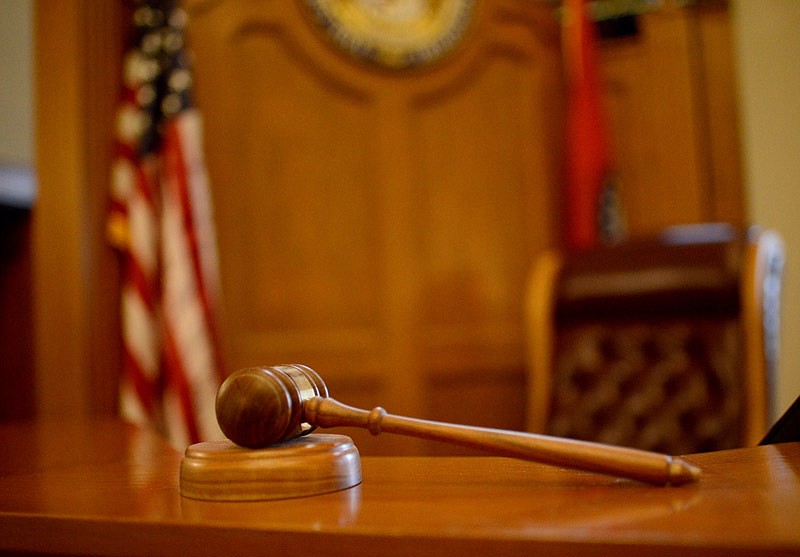Conservative and progressive advocacy groups are slamming a bill aimed at combating a surge of violence in Missouri's largest cities as a return to tough-on-crime policies.
At issue is a bill that would stiffen penalties for gun crimes, dangerous felonies and crimes committed by gangs. It also would create the crime of vehicle hijacking, which now can be prosecuted as robbery.
It's the only bill the Republican-led Legislature managed to pass that's directed at curbing a spike in violent crime in Kansas City, Springfield and St. Louis.
"Many of these crimes are committed by a small number of repeat offenders," Republican Sen. Tony Luetkemeyer said in a statement. "My legislation ends the catch-and-release practices and ensures the most dangerous criminals are behind bars."
However, many critics urged the governor to veto it, arguing the measure would revive the 1980s and '90s tough-on-crime approach.
"We are in an election year and short-sighted politicians would rather trade ill-fated, wrong-headed legislation over-criminalizing current conduct that's already against the law in hopes of gaining votes in their districts," Missouri NAACP President Rod Chapel said. "Everyone wants to appear tough on crime."
Researchers have cited the tough-on-crime movement as contributing to the disproportionate involvement of people of color in the U.S. criminal justice system, and the bill's passage comes as protesters in Missouri and across the U.S. call to reform policing practices that disproportionately hurt Black people and other people of color.
Support among Missouri lawmakers in recent years has shifted from tough-on-crime policies to criminal justice reform.
Missouri's prison director credited a massive overhaul of the state's criminal laws that took effect in 2017 in saving the state from opening more prisons. Changes included ending jail time for first-time offenders convicted of having small amounts of marijuana.
Instead, Missouri's prison population dropped from 32,785 in fiscal year 2017 to 24,106 current prisoners, and the state closed a prison.
Enacting the new bill could add another 2,500 prisoners by 2038, according to a financial estimate by legislative researchers.
Americans for Prosperity-Missouri State Director Jeremy Cady said on top of increased prison costs, locking up people longer won't deter criminals from violence.
"It's not going to improve public safety. It will break up families, it will further crowd prisons and it will cost taxpayers more," he said.
Even supporters have said the bill doesn't do enough to combat violent crime.
Executive Director Darrell Moore said the Missouri Association of Prosecuting Attorneys also wanted to strengthen witness-protection programs to encourage more people to testify in court. A bill with those provisions didn't pass this year.
Still, Moore noted the pending legislation would take away the option to sentence people to probation if they are convicted of dangerous felonies, including second-degree murder. The bill also would make it easier for prosecutors to indict teams of criminals.
Missouri law enforcement groups sent a letter to Parson urging him to sign the bill.
Moore said criminal justice reform includes rehabilitation for nonviolent offenders and stiff sentences for repeat, violent criminals.
"There is a small segment who, for whatever reason, are still hellbent on committing violent crime, and there's only one way to deal with it to keep the public safe," Moore said. "And that is to try to remove them from the street for as long as you can."
Parson hasn't indicated whether he'll enact the bill or not. He's a former sheriff and supports criminal justice reform.

